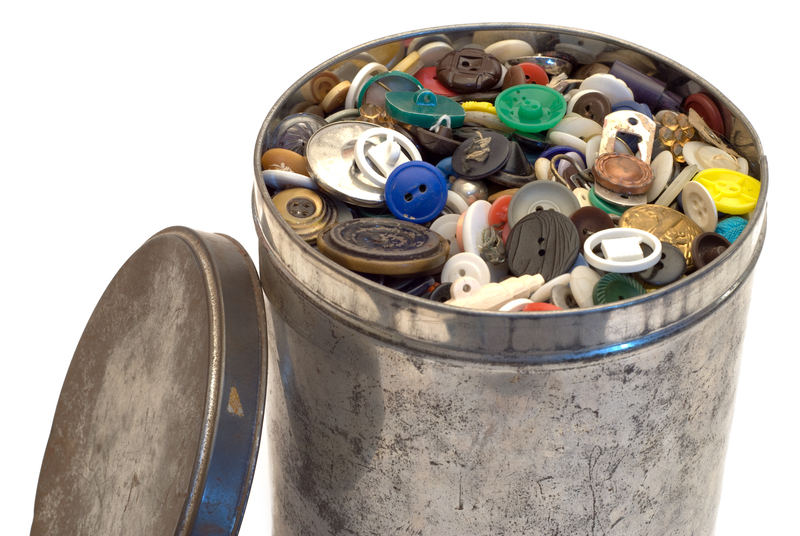Pay Less for Bulky Waste Removal With These Smart Moves
Are you overwhelmed by discarded sofas, unwanted appliances, or piles of garden debris? Bulky waste removal can quickly become an expensive challenge for homeowners, tenants, and businesses alike. Fortunately, you don't need to break the bank to get rid of large or heavy junk. In this comprehensive guide, we'll reveal practical strategies and smart tactics to pay less for bulky waste removal and manage your unwanted items efficiently.
Understanding Bulky Waste and Its Costs
Bulky waste refers to large items that aren't typically accepted in regular garbage collection, such as old furniture, appliances, mattresses, carpets, and yard waste. Removing such items usually requires special pick-ups, private haulers, or trips to disposal facilities. These services often come with a hefty price tag--costs can skyrocketing depending on the item size, weight, and your location.
Typical Costs of Bulky Waste Collection
- Municipal collection fees: $50 to $150 per load or per item
- Private junk removal services: $100 to $600+, depending on volume
- Landfill or transfer station tipping fees: $20 to $60 per ton
With bulky item pickup expenses on the rise, being strategic about your approach can lead to significant savings. Let's explore actionable steps to reduce bulky waste disposal costs.

Smart Moves for Affordable Bulky Waste Removal
1. Check Your Local Council's Services First
Begin by researching your municipality's bulky waste removal policies. Many cities and towns offer free or discounted collection days for large items. Some provide annual or quarterly curbside pickups, while others have drop-off events for residents.
- Visit your city or county website and search for "bulky item disposal" or "large item pickup."
- Find out about any free bulky waste days or voucher programs.
- Ask about limits--how many items per pickup, eligibility, and scheduling rules.
By utilizing local government bulky waste programs, you can avoid commercial service costs altogether.
2. Sort, Prepare, and Stack Items Efficiently
Preparation pays off. Most collection services, whether municipal or private, charge based on the volume and weight of the items collected. Reduce fees by:
- Dismantling furniture into smaller pieces
- Emptying and flattening appliances or boxes
- Tying up branches, carpets, or scrap metal
- Stacking items neatly for easier loading
These steps maximize space and minimize what you pay for removal, making the most of each cubic yard or weight unit.
3. Donate, Gift, or Sell Usable Items
Your unwanted clutter may be a treasure to someone else. Before paying for hauling, try to donate or resell larger items--many charities accept gently used furniture, working appliances, and electronics. Popular options include:
- Habitat for Humanity ReStores: Accepts furniture, appliances, and building materials
- Salvation Army and Goodwill: Take furniture, electronics, and some appliances
- Online Marketplaces: Sell or give away on Facebook Marketplace, Craigslist, or Nextdoor
- Community "Freecycle" Groups: Perfect for items in reasonable condition
*Tip*: Many organizations offer free pickup for large donations, saving you time and hauling expenses.
4. Use "Man With a Van" or Local Small Haulers
Instead of hiring a big franchise junk removal company, price out independent local haulers or "man with a van" services. These providers often work at lower rates and may negotiate, especially if you have everything ready for quick pickup.
- Look for local listings, reviews, and referrals
- Ask for quotes based on photos and detailed item lists
- Consider pooling with neighbors for volume discounts
By shopping around for bulky waste removal, you can often pay 30-50% less than national chains.
5. Rent a Skip or Dumpster and Share With Neighbors
When tackling a big cleanout, skip or dumpster rentals are a powerful money-saving option. However, renting a container for yourself can be pricey. Share the cost with neighbors, friends, or family members, especially if several households need to remove large items at once.
- Negotiate a group rental rate with local waste companies
- Coordinate a convenient delivery and pickup schedule
- Split the fee--big savings for everyone involved!
Bulk removal discounts and shared containers dramatically cut per-person costs.
6. Take Advantage of Appliance Rebate or Trade-In Programs
Are you upgrading appliances or electronics? Many gas, electric, and solid waste utilities now offer rebate or recycling incentives for responsible disposal of old fridges, freezers, and other large devices. Some retailers will even haul away your old items for free when you buy new ones.
- Check with your utility provider or local government for appliance pick-up deals
- Ask the store when purchasing new appliances about free old item removal
This approach lets you quickly save money on heavy waste removal--and sometimes receive a cash reward!
7. Schedule Bulky Pickup During Off-Peak Seasons
Bulky waste removal is in high demand after moving season, spring cleanups, or holidays. Many providers increase prices during these busy times. Instead, schedule removal during slower months for possible discounts and more flexible appointments.
- Plan cleanouts during winter or late summer for better rates
- Book in advance--avoid urgent or "same-day" fees
Timing is everything if you want to pay less for bulky rubbish collection.
8. Do-It-Yourself Hauling--If It's Safe
If you have access to a pickup truck, trailer, or large SUV, direct drop-off at your local transfer station or landfill is usually the cheapest bulky junk removal method. Just be sure to:
- Sort recyclable from non-recyclable items
- Secure and tarp your load (avoid fines for unsecured loads)
- Check for hazardous waste restrictions or extra charges
DIY hauling may require effort, but it puts you in control of costs--especially with lightweight, high-volume materials like furniture or yard debris.
Bonus Tips for Even Greater Savings
- Combine bulky waste with other household junk: Clean out your attic, garage, or shed and dispose of multiple items at once, reducing per-item fees or maximizing volume limits.
- Negotiate or bundle services: Ask if your hauler offers discounts for removing multiple items or if combining hauling with cleaning/labor keeps rates lower.
- Consider a "Take Away" day in your neighborhood: Organize a community event where everyone puts unwanted items curbside for free pickup--some local authorities or charities may even sponsor these events.
Common Bulky Waste Removal Mistakes (And How to Avoid Them)
- Ignoring recycling options: Many electronics, metal items, and appliances can be recycled for free or at a much lower cost than general landfill disposal.
- Leaving hazardous items in your load: Batteries, paints, or chemicals require special handling; including them may result in fines or rejected pickups.
- Forgetting to ask about hidden fees: Always clarify charges--some companies add fuel surcharges, stairs/carry fees, or extra labor costs.
- Not checking weight or size limits: Be aware of maximums to avoid unexpected expenses or refused items.
How to Compare Bulky Waste Removal Services
With so many options--municipal, private, DIY--it's essential to compare your choices side by side for the best value. Here's what to keep in mind:
- Get Multiple Quotes: Always request estimates from at least three reputable providers. Use photos or lists to describe your bulk items for an accurate price.
- Check Reviews and Licenses: Reliable, licensed haulers may cost a bit more but reduce the risk of illegal dumping, surprise fees, or poor service.
- Factor in Convenience and Speed: Sometimes, paying a modest premium for fast, full-service removal is worth it, especially for heavy or hard-to-lift items.
- Ask About Disposal Methods: Favor companies that donate, recycle, or sort out waste for environmentally friendly removal.
Environmental and Legal Considerations
Paying less for bulky waste collection is important, but so is disposing of your items legally and ethically. Illegal dumping or improper disposal can result in fines--and harm your community and environment. Ensure any hauler you use follows regulations for waste management and ethical recycling.
Many municipalities issue permits or authorizations to professional bulky waste removers. Always ask for proof when hiring private parties.

Frequently Asked Questions About Bulky Waste Disposal
-
Q: Can I leave bulky items at my curb for regular trash pickup?
A: Most regular garbage routes do not accept bulky items--you'll need to book a special pickup, use a waste facility, or arrange a dedicated service. -
Q: What items are considered bulk waste?
A: Large furniture, mattresses, appliances, some electronics, carpets, and lawn debris. Car tires, construction waste, and hazardous materials require different handling. -
Q: How do I find recycling drop-off for bulky items?
A: Search your local government website for recycling centers, or contact waste authorities for guidance. -
Q: Will charities really pick up large donations for free?
A: Many will! Contact them to verify accepted items, scheduling, and condition requirements. -
Q: What should I do with broken or unusable items?
A: If too damaged for donation or sale, book a municipal bulky pickup, local hauler, or take it directly to a landfill or recycling center.
Conclusion: Pay Less for Bulky Waste Removal With Thoughtful Planning
Disposing of oversized or heavy trash shouldn't empty your wallet. With these clever moves for low-cost bulky waste removal, you can save money, time, and effort while keeping your home clutter-free. The key steps are:
- Utilize free or low-cost city bulky item collection
- Donate, sell, or give away usable items
- Prep and sort for cost-effective disposal
- Compare local haulers and share resources with neighbors
- Take advantage of rebate and take-back programs
By investing a little planning, you'll cut your waste removal costs--and do your part for the environment and your community. Ready to clear your space and pay less for bulky junk removal? Start with these tips today!
